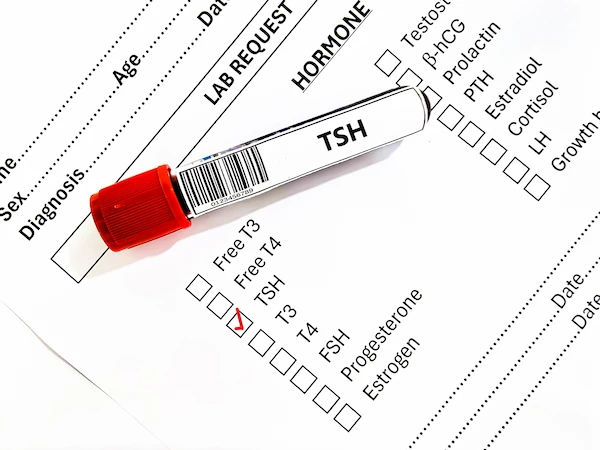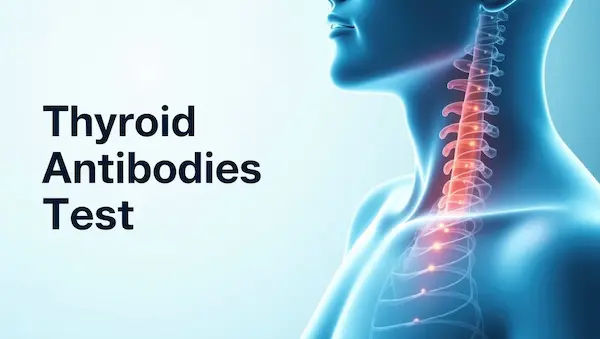List of Blood Test Abbreviations
Decode common blood test abbreviations like CBC, LDL, HbA1c, and TSH. Learn what each test means, why it’s done, and how to interpret your results for better health awareness.

Written by Dr. Siri Nallapu
Reviewed by Dr. J T Hema Pratima MBBS, Fellowship in Diabetes Mellitus
Last updated on 8th Aug, 2025

Blood tests are an essential part of diagnosing and monitoring health conditions. However, the long list of abbreviations on your lab report can be confusing. If you’ve ever wondered what terms like CBC, HbA1c, or LDL mean, this guide will help you understand common blood test abbreviations in simple terms.
Why Are Blood Tests Important?
Blood tests provide valuable information about your overall health, including:
- Organ function (liver, kidneys, thyroid)
- Nutrient levels (iron, vitamin D)
- Risk of diseases (diabetes, cholesterol issues)
- Infections or inflammation
Understanding these abbreviations can help you take better control of your health.
Common Blood Test Abbreviations
Here’s a breakdown of frequently used blood test terms:
1. Complete Blood Count (CBC)
A CBC measures different components of your blood:
- RBC – Red Blood Cells (carry oxygen)
- WBC – White Blood Cells (fight infections)
- Hb/Hgb – Haemoglobin (oxygen-carrying protein)
- HCT – Hematocrit (percentage of RBCs in blood)
- PLT – Platelets (help in clotting)
Why it’s done: Checks for anaemia, infections, or blood disorders.
2. Blood Sugar Tests
- FBS (Fasting Blood Sugar) – Measures glucose after fasting.
- PPBS (Postprandial Blood Sugar) – Checks glucose after a meal.
- HbA1c – Average blood sugar over 2-3 months (used for diabetes diagnosis).
Why it’s done: Monitors diabetes or prediabetes.
3. Lipid Profile (Cholesterol Test)
- LDL – Low-Density Lipoprotein ("bad" cholesterol)
- HDL – High-Density Lipoprotein ("good" cholesterol)
- TG – Triglycerides (fat in blood)
Why it’s done: Assesses heart disease risk.
Consult a Top Physician For More Health Benefits
4. Liver Function Tests (LFTs)
- ALT & AST – Liver enzymes (high levels indicate liver damage).
- ALP – Alkaline Phosphatase (checks liver/bone health).
- Bilirubin – Measures liver function and jaundice risk.
Why it’s done: Detects liver diseases like hepatitis or fatty liver.
5. Kidney Function Tests (KFTs)
- Creatinine – Waste product filtered by kidneys.
- BUN – Blood Urea Nitrogen (kidney function indicator).
- eGFR – Estimated Glomerular Filtration Rate (kidney efficiency).
Why it’s done: Checks for kidney disease or dehydration.
6. Thyroid Function Tests
- TSH – Thyroid-Stimulating Hormone (regulates thyroid).
- T3 & T4 – Thyroid hormones (control metabolism).
Why it’s done: Diagnoses hypothyroidism or hyperthyroidism.
7. Electrolytes
- Na (Sodium) – Regulates fluid balance.
- K (Potassium) – Supports heart and muscle function.
- Ca (Calcium) – Important for bones and nerves.
Why it’s done: Detects dehydration, kidney issues, or imbalances.
8. Inflammation & Infection Markers
- CRP (C-Reactive Protein) – Indicates inflammation.
- ESR (Erythrocyte Sedimentation Rate) – Checks infection or autoimmune diseases.
Why it’s done: Helps diagnose infections or chronic inflammation.
How to Read Your Blood Test Report
1. Check Reference Ranges – Results are compared to normal ranges (may vary by lab).
2. Look for Abnormal Values – High or low levels may need further investigation.
3. Consult Your Doctor – They will explain what the results mean for your health.
Tips for Better Blood Test Results
- Stay Hydrated – Helps with accurate readings.
- Follow Fasting Instructions (if required).
- Eat a Balanced Diet – Supports healthy cholesterol, sugar, and nutrient levels.
- Exercise Regularly – Improves blood sugar and heart health.
- Avoid Smoking & Excess Alcohol – Can affect liver and cholesterol tests.
When to Consult a Doctor?
If your report shows abnormal levels, don’t panic—some variations are normal. However, consult a doctor if:
- You have symptoms like fatigue, dizziness, or unexplained weight changes.
- Multiple tests show irregularities.
- You need guidance on lifestyle changes or medications.
Need Help? If you want to understand your blood test results better or book a test, Apollo 24|7 makes it easy. You can schedule a consultation or lab test from home for a hassle-free experience.
Final Thoughts
Blood test abbreviations may seem overwhelming, but knowing what they mean empowers you to take charge of your health. Always discuss your reports with a doctor for personalised advice.
Consult a Top Physician For More Health Benefits
Consult a Top Physician For More Health Benefits

Dr. Syed Ismail Ali
General Practitioner
7 Years • MBBS
Hyderabad
Apollo 24|7 Clinic, Hyderabad

Dr D M Karthik
General Practitioner
4 Years • MBBS, Fellowship in Diabetes Mellitus, Advance certificate in Diabetes Mellitus, Derma Nutrition Certification
Visakhapatnam
Apollo 24|7 Clinic - Andhra Pradesh, Visakhapatnam

Dr. M L Ezhilarasan
General Practitioner
6 Years • MBBS
Visakhapatnam
Apollo 24|7 Clinic - Andhra Pradesh, Visakhapatnam

Dr. Chaithra H
General Physician/ Internal Medicine Specialist
6 Years • MBBS, MD General Medicine, DNB General Medicine
Bangalore
Apollo 24|7 Clinic - Karnataka, Bangalore

Dr. Suraja Nutulapati
General Physician/ Internal Medicine Specialist
10 Years • MBBS, MD (Internal Medicine)
Hyderabad
Apollo 24|7 Clinic, Hyderabad
(975+ Patients)
Consult a Top Physician For More Health Benefits

Dr. Syed Ismail Ali
General Practitioner
7 Years • MBBS
Hyderabad
Apollo 24|7 Clinic, Hyderabad

Dr D M Karthik
General Practitioner
4 Years • MBBS, Fellowship in Diabetes Mellitus, Advance certificate in Diabetes Mellitus, Derma Nutrition Certification
Visakhapatnam
Apollo 24|7 Clinic - Andhra Pradesh, Visakhapatnam

Dr. M L Ezhilarasan
General Practitioner
6 Years • MBBS
Visakhapatnam
Apollo 24|7 Clinic - Andhra Pradesh, Visakhapatnam

Dr. Chaithra H
General Physician/ Internal Medicine Specialist
6 Years • MBBS, MD General Medicine, DNB General Medicine
Bangalore
Apollo 24|7 Clinic - Karnataka, Bangalore

Dr. Suraja Nutulapati
General Physician/ Internal Medicine Specialist
10 Years • MBBS, MD (Internal Medicine)
Hyderabad
Apollo 24|7 Clinic, Hyderabad
(975+ Patients)




